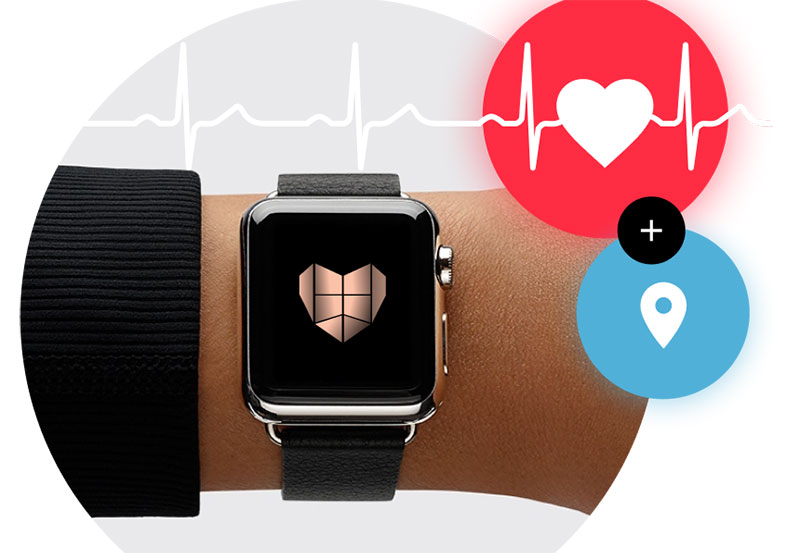Biometrics and geolocation startup Taliware launched an identity-management software developer toolkit (SDK). By integrating the Taliware SDK with their applications, mobile app developers can use Taliware’s patented Biombeat to access ECG-based biometric verification, to enable passwordless, location-based authentication.
Read more Nymi Receives FIDO2 Biometric Passwordless Certification For Nymi Band 3.0
Operating in stealth mode until now, Taliware has perfected a set of proprietary algorithms for human identity verification that apply machine-learning techniques to decipher a person’s electrocardiogram (ECG) — a unique biometric signature. Taliware Biombeat is currently compatible with Apple Watch models equipped with an ECG sensor. Taliware’s platform roadmap includes Google Verily, Samsung, and Withings.
When paired with a smartphone, Biombeat enables a mobile app to authenticate the user’s ECG trace, verify the user’s proximity to the phone, and determine the geographical location of both the user and the app. This multimodal approach delivers highly accurate multifactor authentication.
Like other biometric approaches, Taliware’s Biombeat ECG authentication eliminates the need for a password. Recently, fingerprint authentication has largely been superseded by face authentication, however, the latter has been rendered less effective during the pandemic. By comparison, Biombeat authentication uses the ECG capabilities of a smartwatch, continually assessing our individual cardiac rhythm as a unique and persistent biometric.
“With Taliware and an ECG-enabled smartwatch, your heartbeat is your password,” said Tarik Tali, co-founder and CEO of Taliware. “Moreover, our geolocation component adds another layer of security to counter fraud, providing proof of presence while ensuring that a person is who they say they are, along with a time-stamped location.”

The increasing incidence of data breaches and other malign cybersecurity attacks underscores the need for stronger security around user authentication. Strong identity verification can be achieved by injecting NFC chip technology under the skin of users, for example. And while this certainly accomplishes positive identification of the individual, its invasive nature is unlikely to gain broad acceptance. Meanwhile, multi-factor authentication (MFA) has emerged as a viable approach since it supports a zero-trust model and enhances the granularity of user rights and permissions by guaranteeing the identity of the user.
Read more B-Secur Introduces EKG Authentication and Wellness Algorithms
The Taliware Biombeat MFA approach delivers unique benefits to any organization concerned about identity and access management (IAM). Biombeat addresses all of these security challenges, for example:
- Eliminates password friction: simple and easy single sign-on (SSO) and control of privileged access to critical information systems, devices, and applications. ECG-based authentication addresses the shortcomings of fingerprint- and face-based authentication.
- Reduces (IAM) cost: no need for password management (loathed by most users); users simply use their heartbeat for authentication.
- Reduces fraud costs: banks can easily validate, non-intrusively, the identity and location of their customer during credit card transactions. Customers may be driving or in a meeting but can quickly approve or decline a bank transaction simply based on their heartbeat and location.
- Reduces support calls and costs associated with point-of-sale card cancellations and replacement card issuance.









